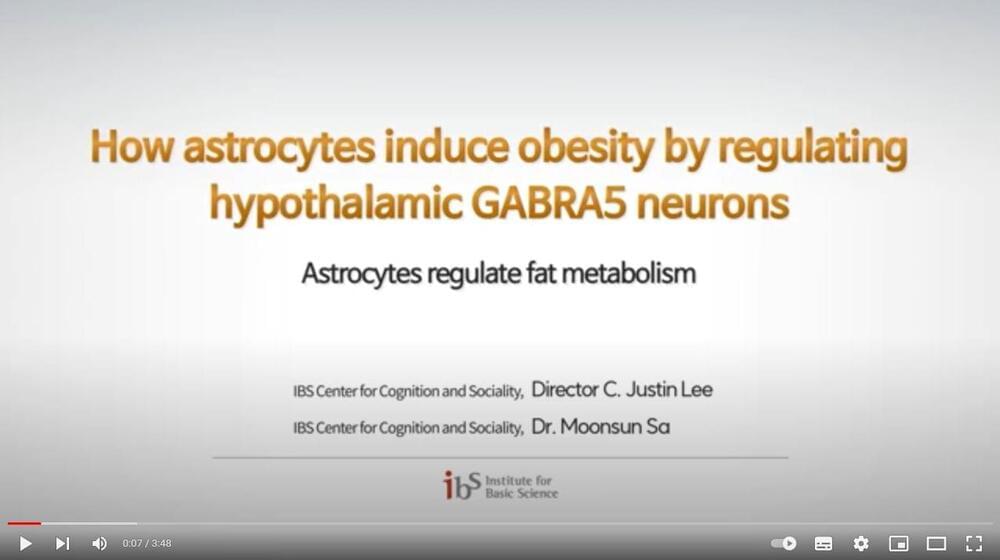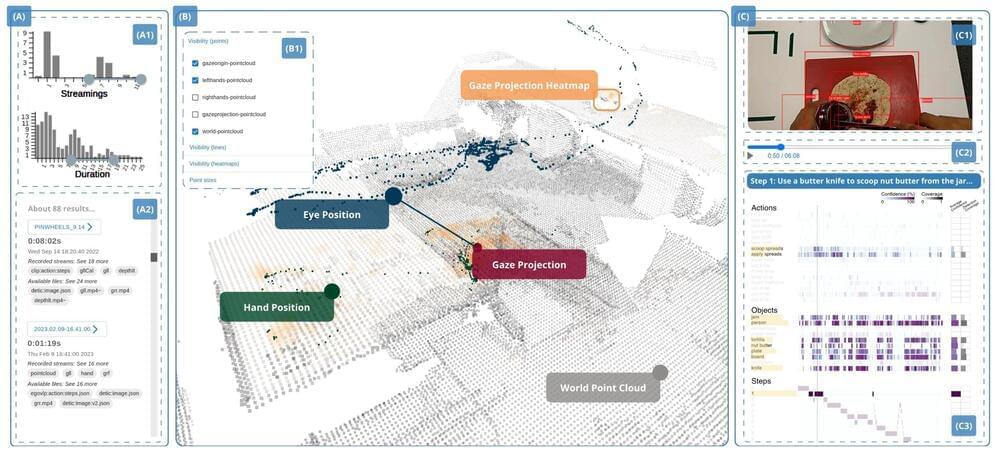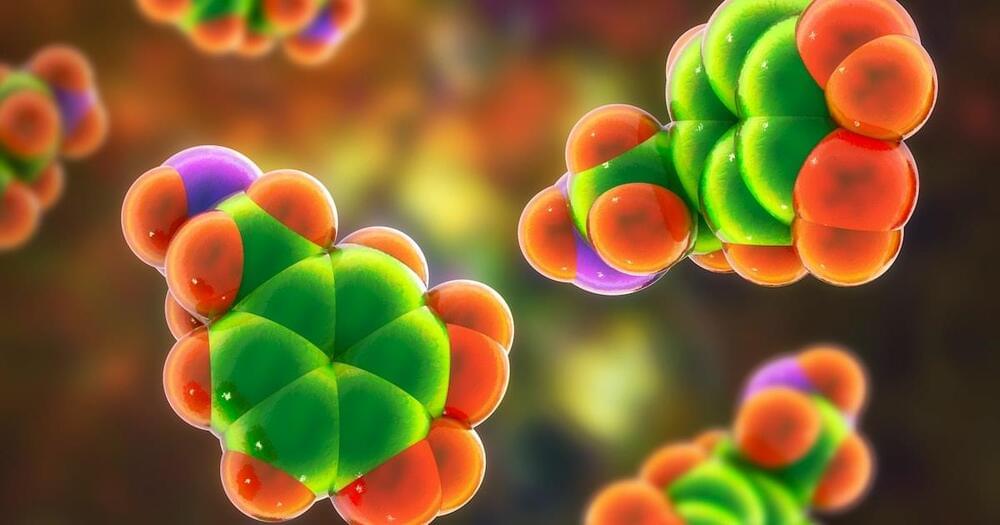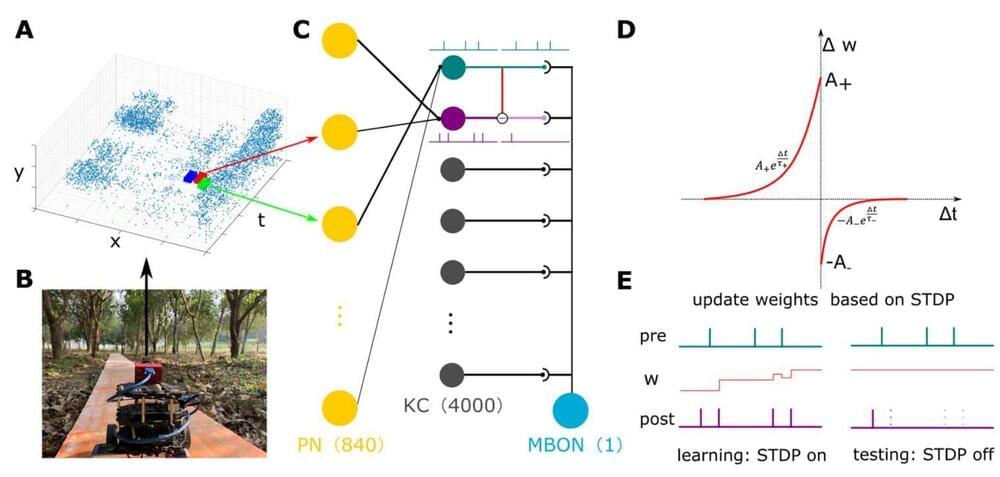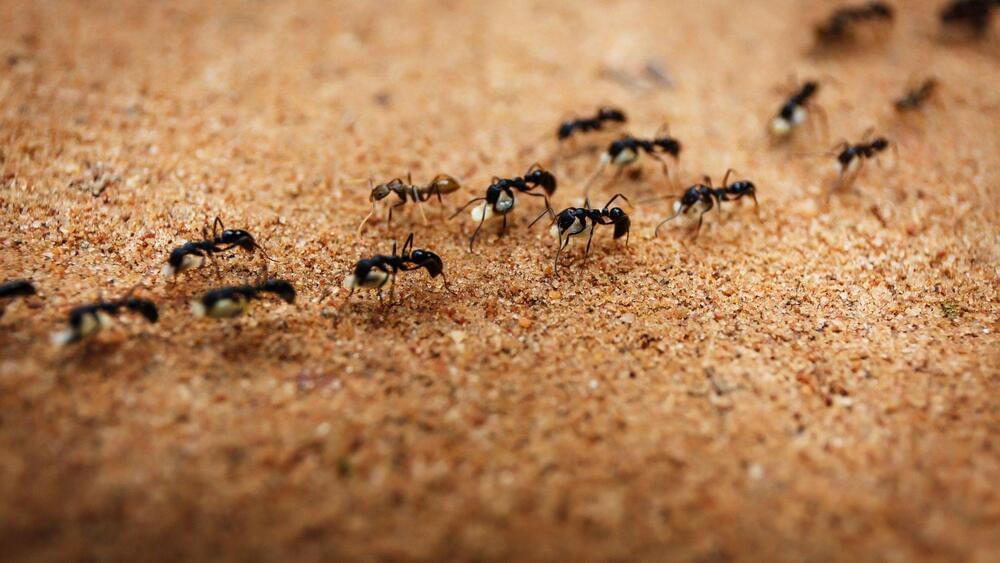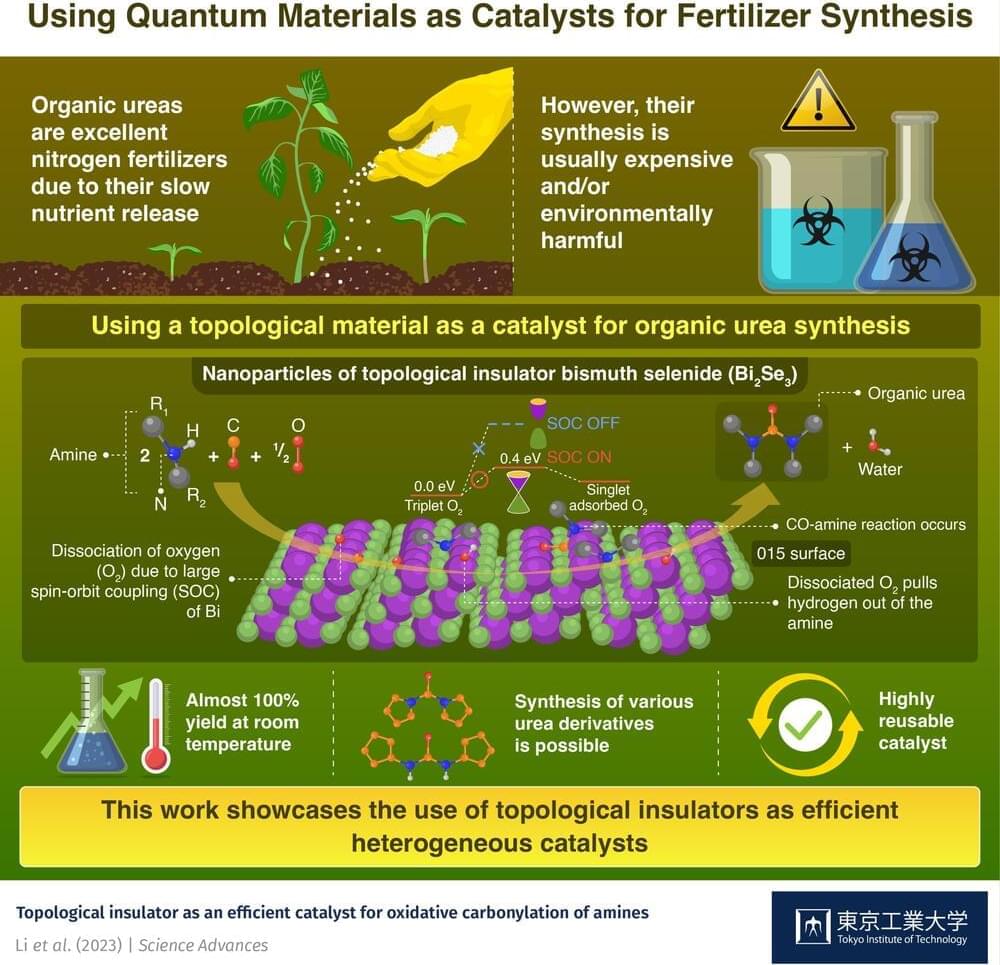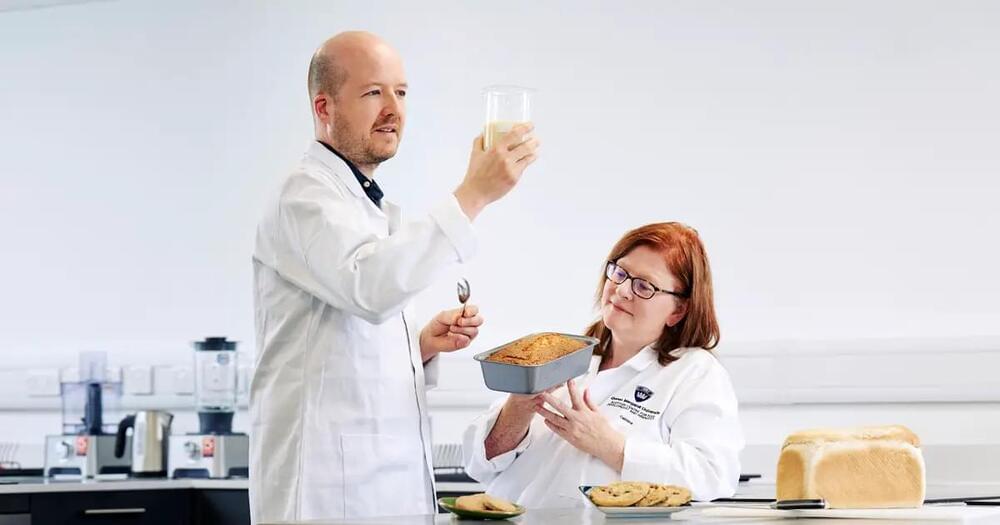Sep 29, 2023
A new breakthrough in obesity research allows you to lose fat while eating all you want
Posted by The Neuro-Network in categories: biotech/medical, food, genetics, neuroscience
This is a significant development that brings hope to the one billion individuals with obesity worldwide. Researchers led by Director C. Justin LEE from the Center for Cognition and Sociality (CCS) within the Institute for Basic Science (IBS) have discovered new insights into the regulation of fat metabolism. The focus of their study lies within the star-shaped non-neuronal cells in the brain, known as ‘astrocytes’. Furthermore, the group announced successful animal experiments using the newly developed drug ‘KDS2010’, which allowed the mice to successfully achieve weight loss without resorting to dietary restrictions.
The complex balance between food intake and energy expenditure is overseen by the hypothalamus in the brain. While it has been known that the neurons in the lateral hypothalamus are connected to fat tissue and are involved in fat metabolism, their exact role in fat metabolism regulation has remained a mystery. The researchers discovered a cluster of neurons in the hypothalamus that specifically express the receptor for the inhibitory neurotransmitter ‘GABA (Gamma-Aminobutyric Acid)’. This cluster has been found to be associated with the α5 subunit of the GABAA receptor and was hence named the GABRA5 cluster.
In a diet-induced obese mouse model, the researchers observed significant slowing in the pacemaker firing of the GABRA5 neurons. Researchers continued with the study by attempting to inhibit the activity of these GABRA5 neurons using chemogenetic methods. This in turn caused a reduction in heat production (energy consumption) in the brown fat tissue, leading to fat accumulation and weight gain. On the other hand, when the GABRA5 neurons in the hypothalamus were activated, the mice were able to achieve a successful weight reduction. This suggests that the GABRA5 neurons may act as a switch for weight regulation.
